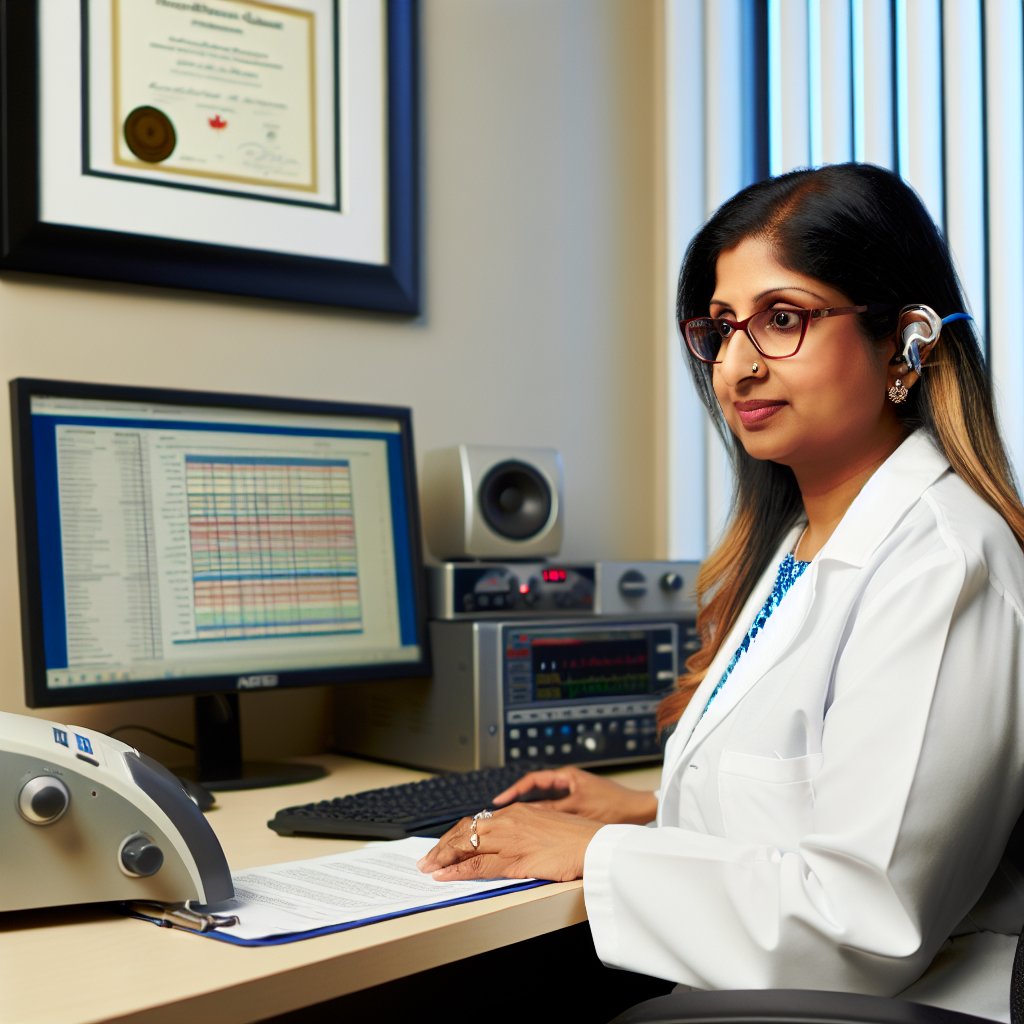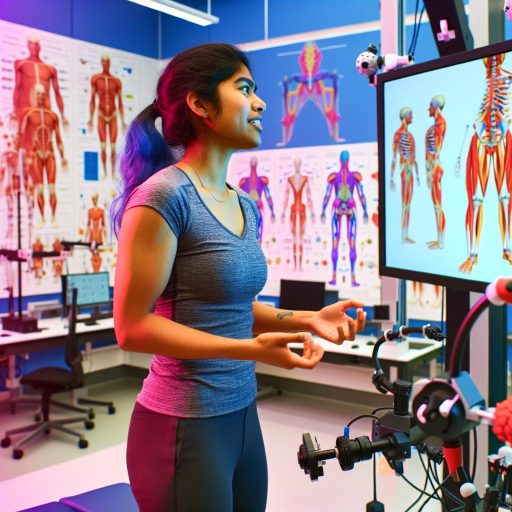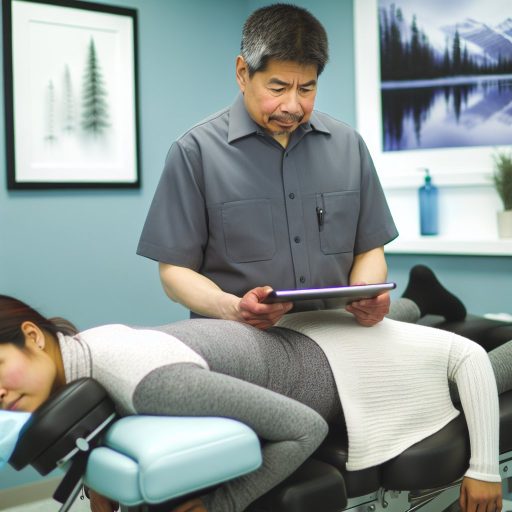Understanding the Role of an Audiologist in Canada
Introduction to Audiology
Audiology is a vital field focused on hearing health.
It encompasses the study, diagnosis, and management of hearing loss.
Audiologists play an essential role in helping individuals hear better.
Importance of Hearing Health
Hearing health significantly impacts overall well-being.
Good hearing contributes to better communication.
Additionally, it enhances social interactions and relationships.
Services Provided by Audiologists
Audiologists offer various services related to hearing health.
They conduct hearing assessments for all age groups.
Furthermore, they provide counseling for hearing loss management.
They also fit and maintain hearing aids and other assistive devices.
Collaboration with Health Care Professionals
Audiologists often collaborate with other health care providers.
They work closely with physicians to diagnose related medical conditions.
Moreover, they consult with speech-language pathologists for integrated care.
Awareness and Education
Raising awareness about hearing health is crucial.
Audiologists engage in community outreach and education programs.
They advocate for the importance of regular hearing screenings.
Educational and Professional Requirements to Become an Audiologist in Canada
Initial Educational Background
Prospective audiologists must first complete a bachelor’s degree.
This degree should ideally focus on health sciences, psychology, or communication sciences.
Many schools offer undergraduate programs specifically in audiology or speech-language pathology.
Students should gain foundational knowledge to prepare for advanced studies.
Graduate Level Education
A master’s degree in audiology is the minimum requirement for practice.
Some universities provide a Doctor of Audiology (Au.D.) program instead.
During these programs, students undergo intensive theoretical and clinical training.
Furthermore, they learn to assess, diagnose, and treat hearing disorders.
Clinical Experience
Completing a clinical practicum is essential for aspiring audiologists.
Unlock Your Career Potential
Visualize a clear path to success with our tailored Career Consulting service. Personalized insights in just 1-3 days.
Get StartedThis hands-on experience occurs during their graduate studies.
Students work under licensed audiologists in various settings.
Experiences can include hospitals, private practices, and rehabilitation centers.
Certification Requirements
After graduation, audiologists must pass a certification examination.
This exam is administered by the Canadian Alliance of Audiology and Speech-Language Pathology.
Successful candidates receive a certificate to practice as an audiologist.
It is crucial for maintaining professional standards in the field.
Provincial Licensing
Each province has its licensing requirements for audiologists.
It is essential to check the regulations specific to your province.
This process ensures compliance with local healthcare standards.
After obtaining a license, audiologists can practice independently or in teams.
Continuing Education
Continuing education is vital in the field of audiology.
Audiologists must stay updated on new research and treatment methods.
This requirement helps provide the best care to patients.
Many professional associations offer resources for ongoing learning and professional development.
Typical Duties and Responsibilities of an Audiologist
Conducting Hearing Assessments
Audiologists perform comprehensive evaluations of hearing ability.
They use specialized equipment for diagnostic testing.
This process helps to identify the type and degree of hearing loss.
Additionally, audiologists interpret test results to guide treatment.
Providing Hearing Rehabilitation
Audiologists develop personalized rehabilitation plans.
These plans may include fitting hearing aids and assistive devices.
They also provide training on using these devices effectively.
This support enhances patients’ quality of life significantly.
Patient Education and Counseling
Education is a crucial part of an audiologist’s role.
They explain hearing loss and its implications to patients and families.
Counseling helps patients cope with communication challenges.
Moreover, audiologists promote awareness of preventative measures.
Collaboration with Other Healthcare Professionals
Audiologists often work alongside doctors and specialists.
This collaboration ensures comprehensive care for patients.
They refer patients for additional medical evaluations as needed.
Furthermore, they participate in multidisciplinary team meetings.
Research and Development
Many audiologists engage in research activities.
They explore new treatment methods and technologies.
This research contributes to advancing the field of audiology.
Moreover, they present findings at conferences and seminars.
See Related Content: Role of Kinesiologists in Enhancing Physical Well-Being
Types of Audiology Services Provided in Canada
Diagnostic Services
Audiologists play a vital role in diagnosing hearing and balance disorders.
They use a variety of tests to evaluate auditory function.
These tests often include pure tone audiometry and speech audiometry.
Additionally, audiologists may conduct middle ear assessments.
These diagnostic services help identify the extent of hearing loss.
Furthermore, they can pinpoint the cause of balance issues.
Hearing Aid Fitting and Management
Audiologists provide personalized hearing aid consultations for clients.
They recommend appropriate devices based on individual hearing needs.
Moreover, audiologists assist with the fitting and programming of hearing aids.
They ensure devices are comfortable and functional for the user.
Continuous follow-up appointments are standard for adjustments.
This ongoing support optimizes the user’s hearing experience.
Rehabilitation Services
Audiologists offer rehabilitation services to improve communication skills.
They design customized auditory rehabilitation programs for clients.
These programs may include auditory training and speech reading techniques.
Additionally, they provide counseling for individuals and families.
This counseling focuses on coping strategies for hearing loss.
By addressing emotional and social impacts, audiologists enhance quality of life.
Education and Prevention Programs
Audiologists lead education initiatives in schools and communities.
They raise awareness about hearing loss prevention and treatment.
Moreover, they provide resources for safe listening practices.
Public screenings for hearing loss are part of these initiatives.
These programs aim to promote early detection and intervention.
Ultimately, education empowers individuals to protect their hearing health.
Research and Advocacy
Audiologists engage in ongoing research to advance audiology practice.
They assist in developing new technologies and treatment methods.
Furthermore, they advocate for policies that support hearing health care.
Through collaboration with health organizations, they influence public policy.
Their efforts contribute to the overall improvement of audiology services in Canada.
Gain More Insights: Skills Needed To Become A Speech-Language Pathologist
The Role of Audiologists in Diagnosing Hearing Disorders
Initial Consultation
Audiologists begin the process with a thorough consultation.
During this session, they discuss the patient’s medical history.
They also explore the patient’s hearing concerns in detail.
This conversation helps establish a foundation for diagnosis.
Comprehensive Hearing Assessments
Audiologists conduct various tests to evaluate hearing ability.
These assessments often include pure-tone audiometry.
Additionally, they may utilize speech audiometry techniques.
Both tests help identify specific types of hearing loss.
Interpreting Test Results
After testing, audiologists analyze the results thoroughly.
They assess the degree and type of hearing impairment.
This analysis guides the development of a personalized treatment plan.
Effective communication with the patient occurs at this stage.
Referral to Specialists
In specific cases, audiologists refer patients to other healthcare specialists.
This step is crucial for comprehensive care.
Referrals may involve ear, nose, and throat (ENT) doctors.
It can also include neurologists in complex cases.
Education and Counseling
Education plays a vital role in the audiological process.
Audiologists provide patients with information about hearing disorders.
They also offer guidance on treatment options.
Counseling helps patients understand their hearing condition better.
Monitoring and Follow-Up
Ongoing monitoring is essential for managing hearing disorders.
Audiologists schedule regular follow-up appointments.
This helps track changes in the patient’s hearing ability.
Continual adjustments to treatment plans may be necessary.
Gain More Insights: Challenges Speech-Language Pathologists Often Face

Interdisciplinary Collaboration
Working with Healthcare Professionals
Audiologists play a vital role in the healthcare system.
They collaborate with physicians, speech-language pathologists, and occupational therapists.
This teamwork enhances patient outcomes significantly.
Firstly, they consult with physicians for comprehensive patient assessments.
Secondly, they engage with speech-language pathologists for integrated treatment plans.
Working together ensures that all aspects of a patient’s care are addressed.
Referrals and Recommendations
Referrals among professionals are common in audiology.
For instance, an audiologist may refer a patient to an ENT specialist.
This occurs when a medical issue affects hearing.
Moreover, they often recommend hearing aids or cochlear implants to patients.
Collaboration with hearing aid specialists is likewise essential.
These partnerships improve access to necessary assistive technologies.
Participating in Multidisciplinary Teams
Audiologists frequently participate in multidisciplinary teams.
These teams include educators, social workers, and rehabilitation specialists.
Such collaboration ensures holistic patient care.
Furthermore, it allows for individualized treatment plans tailored to each patient.
Regular meetings help professionals stay updated on patients’ progress.
This communication fosters a supportive environment for patients.
As a result, interdisciplinary efforts can lead to better hearing health outcomes.
Educational Outreach and Advocacy
Audiologists engage in community education and advocacy.
They inform the public about hearing loss prevention strategies.
Additionally, they advocate for policies supporting audiology services.
By working with public health officials, they can enhance community health standards.
These initiatives raise awareness of the importance of hearing health.
Consequently, more individuals seek early intervention for hearing issues.
Explore Further: Challenges And Rewards Of Being An Audiologist
Challenges Faced by Audiologists in Canada
Workforce Shortages
Audiologists in Canada often struggle with workforce shortages.
This issue creates long wait times for patients seeking services.
Many regions in Canada lack sufficient audiology professionals.
As a result, the demand for audiological services exceeds the supply.
Funding Limitations
Funding for audiology services can be inconsistent across provinces.
Government-funded programs often face budget cuts.
Thus, many audiologists are forced to balance patient care and financials.
Some patients must pay out-of-pocket for necessary treatments.
Access to Technology
Accessing the latest audiological technology is a significant challenge.
The cost of modern audiological equipment can be prohibitive.
This limits the tools available to audiologists in some practices.
Consequently, patients may not receive the most effective treatments.
Awareness and Education
Public awareness about hearing health remains low in Canada.
This lack of awareness complicates early diagnosis and treatment.
Many individuals are unaware of available audiological services.
Moreover, educational campaigns are often insufficiently funded.
Rural and Remote Practice Challenges
Audiologists practicing in rural areas face unique challenges.
Travel and distance hinder patient access to services.
Teleaudiology is becoming a valuable resource for remote areas.
However, not all patients have access to reliable internet connections.
Regulatory and Professional Standards
Maintaining high professional standards can be challenging for audiologists.
Regulatory bodies set strict guidelines and expectations.
Compliance with these regulations requires continuous education.
Nevertheless, professional development opportunities may be limited.
The Future of Audiology in Canada: Trends and Innovations
Evolving Technology
Technology is rapidly changing the field of audiology.
New devices enhance hearing capabilities for individuals.
Smart hearing aids offer advanced features for better sound quality.
Moreover, telehealth services are becoming more popular.
These services provide remote consultations and monitor hearing health.
As a result, patients enjoy greater access to care.
Increased Awareness and Advocacy
Raising awareness about hearing loss is crucial.
Advocacy campaigns educate the public about prevention and treatment.
Organizations like Hearing Life Canada are actively involved.
They offer resources and support for individuals coping with hearing impairments.
Focus on Preventative Care
Preventative care is gaining importance in audiology.
Regular hearing screenings can detect problems early.
Community programs promote hearing protection in noisy environments.
Such initiatives aim to reduce the incidence of hearing loss.
Training and Education
Educational programs for audiologists are evolving.
Universities are incorporating advanced technology into their curricula.
This ensures future professionals are ready for modern challenges.
Continuing education is also essential for practicing audiologists.
Collaboration with Other Health Professionals
Collaboration is key to comprehensive patient care.
Audiologists often work with ENT specialists and speech therapists.
This teamwork enhances treatment plans for patients.
Holistic approaches address both hearing and communication needs.
Additional Resources
Universal Hearing Health Care: Canada | The ASHA Leader Archive
Dementia screening and diagnosis tools for health-care providers …




